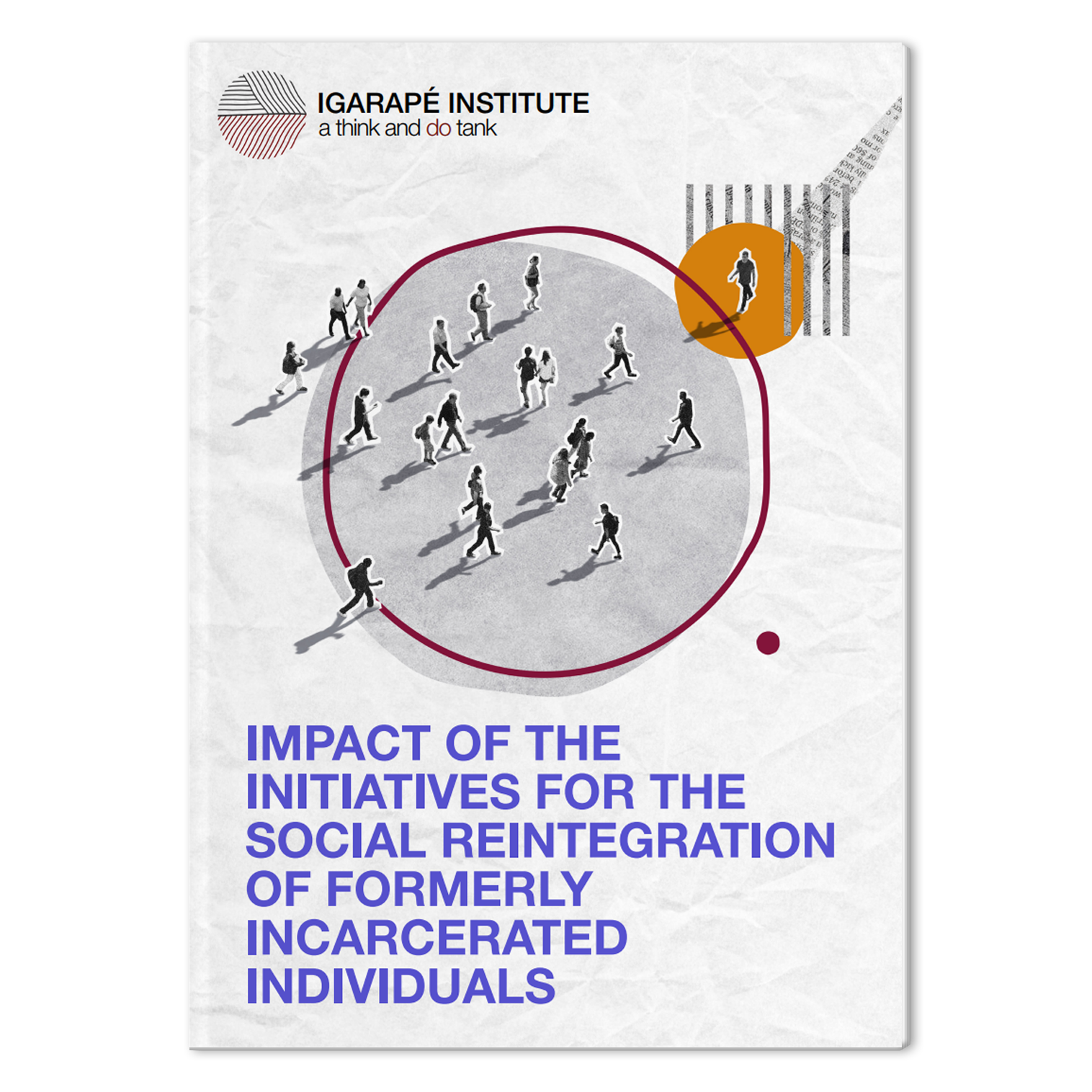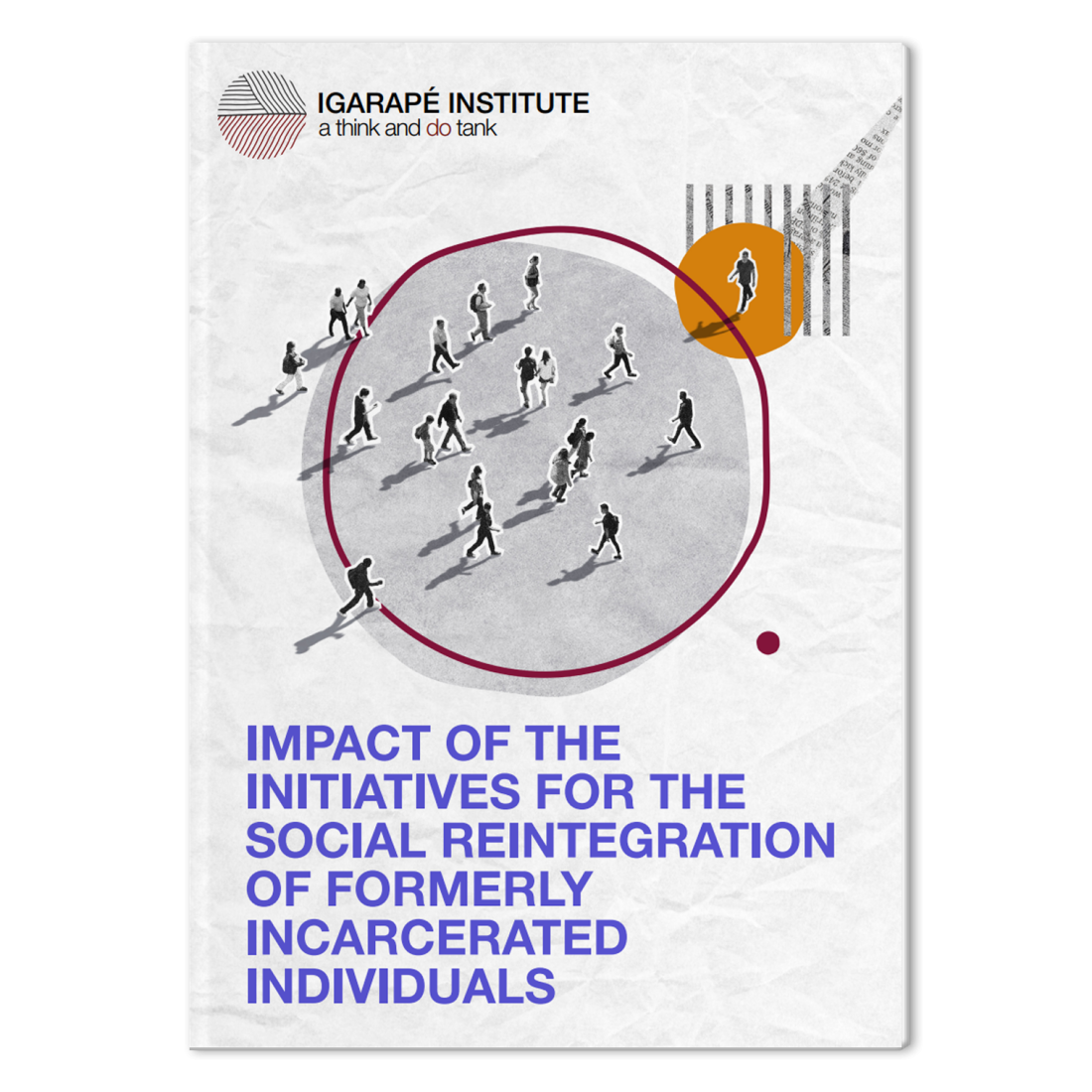Impact of the Initiatives for the Social Reintegration of Formerly Incarcerated Individuals

An analysis of the impacts and results of social reintegration initiatives for formerly incarcerated individuals in Brazil and worldwide, focusing on recidivism and the guarantee of rights. This is the primary objective of this study, which mapped 32 evaluative publications related to 21 national and international programs. From this set, the study focused on those that met the defined criteria for methodological robustness.
In a second phase, a sub-sample of 13 evaluations corresponding to nine social reintegration initiatives for former inmates was selected. The impacts were classified as positive, moderate, mixed, negative, or inconclusive, considering the objectives, strategies, assumptions, and results of each initiative. Of the nine initiatives analyzed, six demonstrated a positive impact in four key areas: individual autonomy and social interaction (2), productive inclusion (1), health (1), and housing (2). One housing-focused initiative was evaluated as having a moderate impact; another, focused on productive inclusion, showed mixed results; and a third, directed at individual autonomy and social interaction, was considered inconclusive.
Notable examples include Journeys 2 Freedom: Women’s Resettlement Programme from the United Kingdom, which achieved stable housing for 95% of participants and employment for 67%; the Reentry Housing Pilot Program from the U.S., which reduced recidivism (21.6% vs. 35.6%) by offering housing assistance conditioned on treatment and job-seeking efforts, although it was discontinued due to budget cuts; and Skill Mill, implemented in the United Kingdom and Estonia, which focused on youth employment and reduced both recidivism rates and the severity of offenses committed.
The analysis of these initiatives’ results provides valuable insights into what works and how it works in the context of public policies and social reintegration for former inmates. In addition to contributing to the maintenance and continuity of actions aimed at individuals released from the prison system, these evaluations help optimize the use of invested resources and guide evidence-based decision-making. The indirect effects are also significant, as they influence judicial reforms and the planning of public policies that can benefit from the replication of high-quality national and international programs, provided they are adapted to different local realities, promoting greater efficiency and positive impact in the sector.
Read the publication
Learn more about this topic in the Guide for the Social Inclusion of Formerly Incarcerated Individuals and on the Public Security page of the Igarapé Institute and the Portal for Freedom project website.



